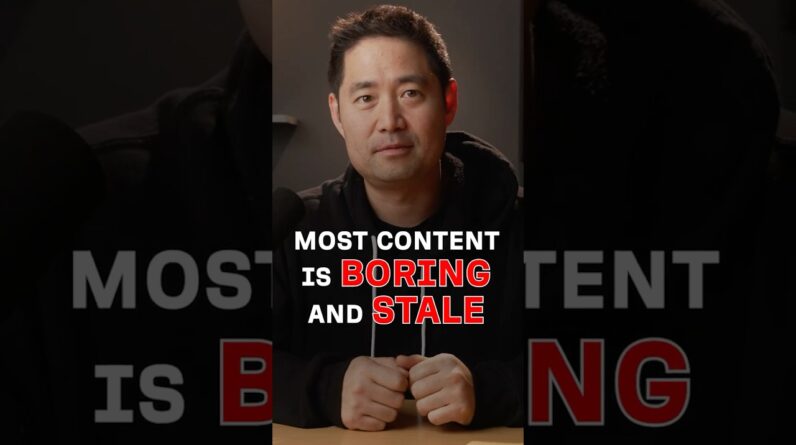
In today’s digital age, social media has become an integral part of our lives. It has not only revolutionized how we connect and interact with others but has also transformed the way businesses operate. But have you ever wondered about the role social media plays in SEO? Well, let’s explore this intriguing question together and uncover the impact of social media on search engine optimization.
Importance of Social Media in SEO
Social media has become an indispensable tool for businesses of all sizes to enhance their online presence and drive organic traffic to their websites. In today’s digital age, where the internet is flooded with information and competition is fierce, it is crucial to leverage social media platforms to boost website visibility, increase organic traffic, and enhance brand awareness. By understanding the role of social media in SEO, businesses can effectively utilize these platforms to optimize their online presence and gain a competitive edge in the digital landscape.
Boosts Website Visibility
One of the primary benefits of utilizing social media in SEO is its ability to boost website visibility. Social media platforms act as a gateway for users to discover and engage with content. By effectively sharing and promoting your website content on social media, you can increase its visibility to a wider audience. When users come across your content on social media and find it valuable, they are likely to visit your website, thus increasing your website’s visibility in search engine result pages (SERPs).
Increases Organic Traffic
When it comes to driving traffic to your website, social media can be a game-changer. By leveraging social media platforms strategically, businesses can attract a significant amount of organic traffic. When users engage with your social media posts and share them with their network, it can lead to an exponential increase in the reach and visibility of your content. This increased exposure not only drives more traffic to your website but also improves your website’s authority in the eyes of search engines, resulting in higher rankings in SERPs.
Enhances Brand Awareness
Social media is a powerful platform for building brand awareness and establishing a strong online presence. By consistently sharing valuable content and engaging with your audience on social media, you can increase brand recognition and create a positive brand image. When users consistently come across your brand on social media and find value in your content, they are more likely to remember your brand and choose it over competitors. This enhanced brand awareness not only leads to increased website traffic but also improves search engine rankings by signaling to search engines that your brand is influential and trustworthy.
Social Media Signals and SEO
Social media signals play a crucial role in search engine optimization (SEO) by influencing search engine rankings and determining the visibility of your website in SERPs. Understanding the impact of social signals on SEO ranking and utilizing engagement metrics to optimize your social media strategy is essential for maximizing the benefits of social media in SEO.
Understanding Social Signals
Social signals refer to the interaction and engagement metrics on social media platforms. These signals include likes, comments, shares, retweets, and other forms of engagement that indicate the relevancy and popularity of your content on social media. Search engines consider these social signals when determining the credibility and authority of your website, as they indicate that your content is valuable and worthy of being shared.
Social Signals’ Impact on SEO Ranking
Social signals have a direct impact on SEO ranking as search engines consider the popularity and engagement of your website’s content on social media platforms. When users engage with your content by liking, commenting, and sharing, search engines interpret it as a positive signal that your content is valuable and relevant. This, in turn, can improve your website’s rankings in SERPs and increase its visibility to a broader audience.
Engagement Metrics and Social Signals
Measuring and analyzing engagement metrics on social media platforms is vital to optimizing your social media strategy for SEO. By monitoring metrics such as likes, comments, shares, and click-through rates, you can gain insights into the type of content that resonates with your audience and drives engagement. This data can be used to refine your content strategy, ensuring that you are consistently delivering valuable and shareable content that boosts social signals and improves SEO rankings.
Using Social Media to Drive Traffic to Your Website
Social media is an effective tool for driving traffic to your website and increasing the reach and visibility of your content. By implementing strategies to share quality content, optimizing your social media profiles, and leveraging hashtags, you can maximize the potential of social media to drive traffic and improve your website’s SEO performance.
Share Quality Content
When it comes to driving traffic from social media to your website, the quality of your content is crucial. By consistently creating and sharing high-quality, valuable, and relevant content, you can attract and engage your target audience. The more users find value in your content, the more likely they are to visit your website to explore further and potentially convert into customers. Additionally, high-quality content is more likely to be shared, expanding your reach and driving more traffic to your website.
Optimize Social Media Profiles
Optimizing your social media profiles is essential for maximizing the impact of social media on your website’s SEO. Ensure that your profiles are complete, accurate, and consistent across all platforms. Include relevant keywords and descriptions in your bio and about sections to make it easier for users to find and understand your brand. By optimizing your social media profiles with relevant keywords, search engines can index your profiles and display them in relevant search results, thereby driving more traffic to your website.
Leverage Hashtags
Hashtags are a powerful tool in social media marketing as they help categorize and organize content, making it easier for users to find relevant information. By strategically incorporating relevant hashtags into your social media posts, you can expand the reach of your content to a wider audience. When users click on or search for hashtags related to your niche or industry, your content will be displayed, increasing its visibility and driving more traffic to your website. Additionally, hashtags can improve your content’s discoverability, making it more likely to be shared by users and further boosting its reach and traffic-driving potential.
Building Backlinks with Social Media
Backlinks are an essential factor in SEO, as they signal to search engines that your website is trustworthy and authoritative. By utilizing social media strategically, you can build backlinks and strengthen your website’s link profile, ultimately improving your SEO rankings.
Sharing Content on Social Platforms
Sharing your website’s content on social media platforms is an excellent way to build backlinks. When users discover your content on social media and find it valuable, they may choose to share it on their own websites or blogs, thereby creating backlinks to your site. Additionally, by actively engaging with your audience and building relationships with influencers and industry leaders on social media, you can increase the likelihood of them sharing and linking to your content.
Encouraging Social Sharing
Encouraging social sharing is crucial for building backlinks with social media. By incorporating social sharing buttons on your website and within your content, you make it easy for users to share your content on social media platforms. This not only increases the likelihood of your content being shared but also creates opportunities for others to discover and link to your website. Additionally, by actively engaging with users who share your content and expressing gratitude, you can foster a sense of community and encourage further sharing and backlinking.
Social Media Influencers and Link Building
Collaborating with social media influencers is an effective way to build backlinks and increase your website’s authority. Influencers have a significant following and influence over their audience, making their recommendations and endorsements highly valuable. By partnering with influencers relevant to your industry or niche, you can leverage their influence to generate backlinks to your website. When influencers share your content or mention your brand, it not only exposes your website to their followers but also creates backlinks from their platforms, ultimately boosting your website’s SEO performance.
Using Social Media for Keyword Research
Keyword research is a fundamental aspect of SEO as it helps businesses identify the right keywords to target and optimize their content. Social media can provide valuable insights for keyword research by identifying trending topics and keywords and analyzing competitor social media profiles.
Identifying Trending Topics and Keywords
Social media platforms are a treasure trove of real-time information, making them an excellent source for identifying trending topics and keywords. By monitoring popular hashtags, discussions, and conversations relevant to your industry or niche, you can gain insights into the topics and keywords that are currently popular among your target audience. These insights can be used to create and optimize content that resonates with your audience’s interests and search behavior, thus improving your website’s visibility and rankings in SERPs.
Analyzing Competitor Social Media Profiles
Analyzing your competitors’ social media profiles can provide valuable insights into their keyword strategy and content performance. By monitoring the keywords they are targeting and the type of content that resonates with their audience, you can gain inspiration for your own keyword research and content creation. Additionally, analyzing competitor profiles can help you identify content gaps and opportunities, allowing you to differentiate yourself and provide unique value to your audience.
Using Keyword Insights in SEO Strategy
The keyword insights gathered from social media can be effectively used to optimize your SEO strategy. By incorporating the identified trending topics and keywords into your website’s content, meta tags, titles, and descriptions, you can increase your website’s relevance and visibility in search results. Additionally, by consistently creating and sharing content that aligns with your audience’s interests and search behavior, you can attract organic traffic and improve your website’s SEO performance.
Utilizing Social Media for Local SEO
For businesses operating in specific locations or targeting a local audience, utilizing social media for local SEO is crucial. By engaging with the local community on social media, listing accurate business information on social platforms, and generating local reviews and recommendations, businesses can enhance their online presence and improve their local search visibility.
Engaging with Local Community on Social Media
Engaging with the local community on social media helps businesses build relationships, establish trust, and foster a sense of community. By joining local groups, participating in discussions, and responding to comments and messages from local users, businesses can position themselves as valuable contributors and industry experts within the local community. This engagement not only strengthens your brand’s visibility among the local audience but also increases the likelihood of local users visiting your website and converting into customers.
Listing Business Information on Social Platforms
Listing accurate and consistent business information on social platforms is essential for local SEO. Ensure that your business name, address, phone number, and website URL are up to date and consistent across all social media profiles. By providing complete and accurate information, you make it easier for search engines to index and display your business in local search results, driving more targeted traffic to your website. Additionally, incorporating relevant keywords and descriptions in your business profiles can further enhance your local search visibility.
Generating Local Reviews and Recommendations
Positive reviews and recommendations from local customers can significantly impact your local SEO. Encourage your satisfied customers to leave reviews and recommendations on social media platforms such as Google My Business, Facebook, Yelp, and industry-specific review sites. Positive reviews not only improve your reputation and credibility but also increase your chances of appearing in local search results. Additionally, responding to reviews, both positive and negative, showcases your commitment to customer satisfaction and further strengthens your brand’s reputation.
Optimizing Social Media Profiles for SEO
Optimizing your social media profiles for SEO is essential for maximizing their impact on your website’s visibility and rankings. By conducting keyword research for your profile bio, utilizing relevant anchor texts, and optimizing your social media posts, you can ensure that your profiles align with your SEO strategy.
Keyword Research for Profile Bio
When optimizing your social media profiles, keyword research plays a crucial role in determining the relevant keywords to incorporate into your profile bio. Conduct thorough keyword research to identify the keywords that are most relevant to your industry, niche, and target audience. Incorporate these keywords strategically in your bio to increase your profile’s visibility in search results and attract users who are actively searching for content related to your industry or niche.
Utilizing Relevant Anchor Texts
Utilizing relevant anchor texts in your social media posts and profile bio can significantly impact your SEO. Anchor texts are clickable texts that provide context and indicate the topic or destination of a link. By using relevant keywords or phrases as anchor texts when linking to your website or other relevant sources, you provide search engines with additional information that helps them understand the content’s relevance. This can lead to improved rankings and increased visibility in search results.
Optimizing Social Media Posts
Optimizing your social media posts for SEO ensures that they are discoverable by users and search engines. Incorporate relevant keywords in your post captions, hashtags, and descriptions to increase their visibility in search results and attract users who are actively searching for content related to your industry or niche. Additionally, optimizing the images and videos you share on social media by including descriptive filenames and alt texts can enhance their discoverability in image and video search results, further driving traffic to your website.
Social Media and Brand Authority
Establishing a strong online presence and building brand authority are crucial for businesses to succeed in the digital landscape. Social media plays a significant role in enhancing brand authority by enabling businesses to engage with their audience, build trust and credibility, and position themselves as industry thought leaders.
Establishing a Strong Online Presence
Social media platforms provide businesses with an opportunity to establish a strong online presence and connect with their target audience. By consistently sharing valuable content, actively engaging with users, and responding to comments and messages, businesses can demonstrate their expertise, knowledge, and commitment to their audience. This consistent presence on social media enhances brand authority by showcasing the value and expertise that the brand brings to the table.
Building Trust and Credibility
Building trust and credibility is essential for establishing brand authority, and social media is an ideal platform to achieve this. By providing useful and relevant information, responding to user queries and concerns promptly, and showcasing positive customer experiences, businesses can build a trustworthy and credible brand image. When users perceive a brand as trustworthy and reliable, they are more likely to choose that brand over competitors and become loyal customers. This trust and credibility established through social media interactions further enhance brand authority.
Becoming an Industry Thought Leader
Social media provides businesses with an opportunity to position themselves as industry thought leaders. By consistently sharing valuable insights, industry news, and innovative ideas, businesses can establish their expertise and become go-to sources of information within their industry or niche. When users recognize a brand as a thought leader, it not only enhances the brand’s authority but also increases its visibility and reach. This increased visibility can translate into improved website traffic, higher search engine rankings, and ultimately, business growth.
The Impact of Social Shares on SEO
The social shares of your website’s content can have a significant impact on its SEO performance. By earning high-quality linking domains, increasing content visibility and exposure, and boosting social proof and trust signals, social shares play a vital role in improving your website’s rankings and credibility in search engines’ eyes.
Earning High-Quality Linking Domains
When users share your website’s content on social media and other platforms, it can lead to the creation of backlinks from high-quality linking domains. High-quality linking domains are websites that have a strong reputation and authority in search engines. When search engines discover backlinks to your website from these high-quality domains, they interpret them as votes of confidence and credibility, thus improving your website’s rankings in SERPs.
Increasing Content Visibility and Exposure
Social shares significantly increase the visibility and exposure of your content to a wider audience. When your content is shared on social media, it has the potential to reach users who may not have discovered it otherwise. The increased visibility and exposure can lead to more organic traffic to your website as users are intrigued by the shared content and want to learn more. Additionally, when users share your content on their social networks, it creates a ripple effect, expanding your content’s reach even further.
Boosting Social Proof and Trust Signals
Social shares act as social proof and trust signals for search engines. When users engage with your content by sharing, liking, or commenting on it, it signals to search engines that your content is valuable and trustworthy. These social signals can positively impact your website’s SEO performance by improving its rankings in SERPs and enhancing its credibility among users. The more social shares your content receives, the more search engines perceive it as authoritative and valuable, thereby boosting its SEO impact.
Measuring the Effectiveness of Social Media in SEO
Measuring the effectiveness of social media in SEO is essential for understanding the impact of your social media strategy on your website’s performance. By monitoring website traffic and referrals, tracking social media engagement metrics, and analyzing SERP rankings and keyword performance, businesses can gauge the effectiveness of their social media efforts and make data-driven decisions to optimize their SEO strategy.
Monitoring Website Traffic and Referrals
Tracking website traffic and referrals from social media platforms provides insights into the impact of your social media strategy on driving traffic to your website. Utilize web analytics tools to monitor the number of visitors, time spent on your website, and conversions attributed to social media referrals. By analyzing this data, you can identify which social media platforms are driving the most traffic, which content is performing well, and which strategies are most effective in driving conversions.
Tracking Social Media Engagement Metrics
Engagement metrics on social media platforms provide valuable insights into the effectiveness of your social media strategy in engaging your audience. Track metrics such as likes, comments, shares, click-through rates, and follower growth to understand how your audience is interacting with your content. Compare these metrics over time and across different platforms to identify trends, measure the impact of specific campaigns or initiatives, and make data-driven decisions to optimize your social media strategy for SEO.
Analyzing SERP Rankings and Keyword Performance
Analyzing your website’s rankings in SERPs and keyword performance provides valuable insights into the SEO impact of social media. Monitor the rankings of keywords that are targeted in your social media campaigns and content and assess any changes in their rankings over time. Additionally, track the visibility and organic traffic of individual pages or pieces of content that have been actively shared on social media. By analyzing these metrics, you can understand the impact of social media on your website’s SEO and make informed decisions to further optimize your strategy.
In conclusion, social media plays a vital role in SEO by boosting website visibility, increasing organic traffic, enhancing brand awareness, and signaling authority and credibility to search engines. By understanding the importance of social media signals and engagement metrics, businesses can strategically leverage social media to drive traffic to their websites, build backlinks, conduct keyword research, optimize their social media profiles, establish brand authority, and measure the effectiveness of their social media efforts. By implementing these strategies, businesses can maximize the benefits of social media in SEO and gain a competitive edge in the digital landscape.






